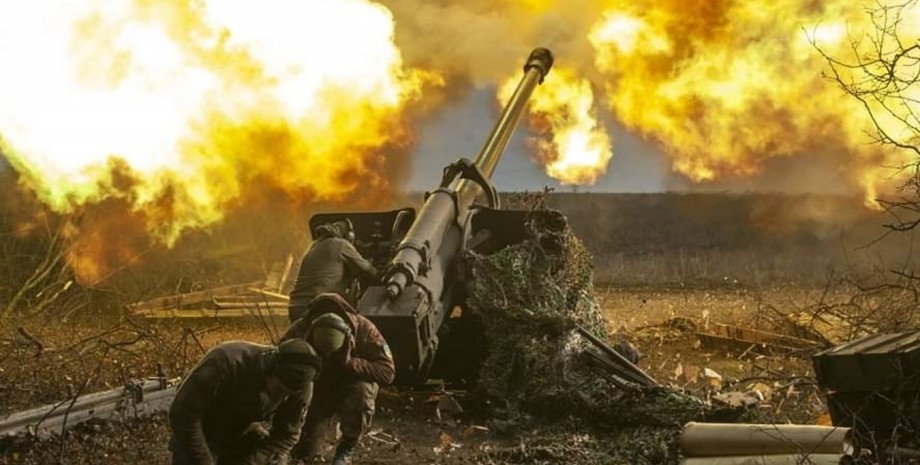
 By Eliza Popova
By Eliza Popova
According to the results of the meeting in Saudi Arabia of Ukrainian and American delegations, the United States will cancel the pause in exchange of intelligence and restore security assistance to Ukraine. Kyiv, in turn, agreed to the 30-day ceasefire. Both delegations have agreed to determine the composition of their negotiation groups and immediately start negotiations to achieve a sustainable peace, which will ensure the long -term security of Ukraine.
The United States pledged to discuss these specific proposals with Russia's representatives. The Ukrainian delegation once again stressed that European partners should be involved in the peace process. The veteran of the Russian-Ukrainian war, the reserve major Alexei Hetman, points to the most important question in the context of the probable temporary ceasefire in Ukraine-who and how will this agreement be controlled? "The front is 1300 km.
Who and how will it monitor the arrangement? It is almost impossible. Air attacks can still be controlled - to track launch of rockets and drones. No, "says the Hetman's focus. The experience of past years does not add optimism. Ukrainians remember numerous "truce" during the ATO - Christmas, School, New Year's Eve - no one was observed, reminds the veteran. And even when the OSCE was supervising, it still did not prevent the fire from starting on the same day. "It remains to wait for the details.
The negotiations are only 10-20%open, the rest passes behind closed doors. Diplomats do not disclose all the details. Therefore, we will have to analyze their words, intonation and behavior to understand more. Expectations are the most unpleasant. But in a few days the situation is likely to be clear.
" Political scientist Oleg Posternak in conversation with focus states that the control over the ceasefire can be exercised by international organizations, such as the UN, OSCE, special monitoring missions or individual observers who record compliance with agreements. However, if Russia provides provocation, for example, near Pokrovsk, Ukraine is forced to answer, because it is a matter of protection and defense. In this case, the ceasefire itself loses meaning, and the fighting continues.
"It will be a serious blow to Trump, because he will not be able to show success in peace, which is important for his image. He promised Americans and the world that is able to make effective agreements, but such an agreement will prove to be incapacitated. Therefore, Trump is at risk. The contract, "says focus Posternak. But even if Russia agrees to the ceasefire, it can break it at any time if it does not like something.
The question is: who will control the compliance with the regime? Will the US do it? It is unclear. According to the political scientist, Trump will most likely rely on his personal relations with Putin, because he prefers personal diplomacy and not international institutions. "However, if Russia violates the agreement, it will be a blow to Trump itself, and it will have to react. The US administration has to identify clear mechanisms of influence.
For example, a bill on sanctions against countries that buy Russian oil and Uranus has recently been introduced to Congress. " According to Posternak, the probability that a temporary ceasefire will work is about 70%. Political scientist Volodymyr Fesenko notes the ideal cessation of fire. However, history shows that wars either end with the surrender of one of the parties (as in the First and Second World Wars), or through peace talks, as it was in Korea.
In most cases, even after the official cessation of hostilities, local violations occur. It is important that the overall situation remains controlled and there are no large -scale military clashes. One of the key factors of a stable truce is the presence of peacekeepers who control the collision line. But the process of their deployment can take at least a few months. "There will be no peacekeepers. Trump is interested in being European forces, but Russia is strongly opposed.
It creates additional problems for the realization of the truce. Currently, the decision to stop hostilities depends on the Kremlin. The political scientist reminds that it is important for Trump to achieve the cessation of war in Ukraine as soon as possible, while Putin is not a primary purpose. However, the very fact of Trump negotiations may be beneficial to the Kremlin.
According to the expert, if Putin sees the possibility of further agreements with the United States, he can agree to the truce. According to the political scientist, in the process of ceasefire agreement is a key problem, the most difficult is the coordination of the collision line. After all, there is no stable collision line, and the Russians have an initiative in separate areas. The definition of this line can significantly delay the negotiations.
After signing the agreement, the main question will be whether it will be able to follow. There is a great risk that the situation will repeat the scenario of the Minsk agreements when due to numerous violations of the ceasefire the fire lost meaning. "Trump wants the arrangement to be reached before Easter, that is, about 100 days after its inauguration. Putin may also be profitable to present the ceasefire as its" victory "until May 9.
However, even if the truce is enclosed, the key question is - whether it will last longer in 30 days. We will remind, the spokesman of the Ministry of Foreign Affairs of Ukraine Georgy Tykhy called the meeting in Jeddi (Saudi Arabia) of Ukrainian and American delegations on the harmonization of the truce proposed by Washington the most interesting of those who had to participate.










All rights reserved IN-Ukraine.info - 2022